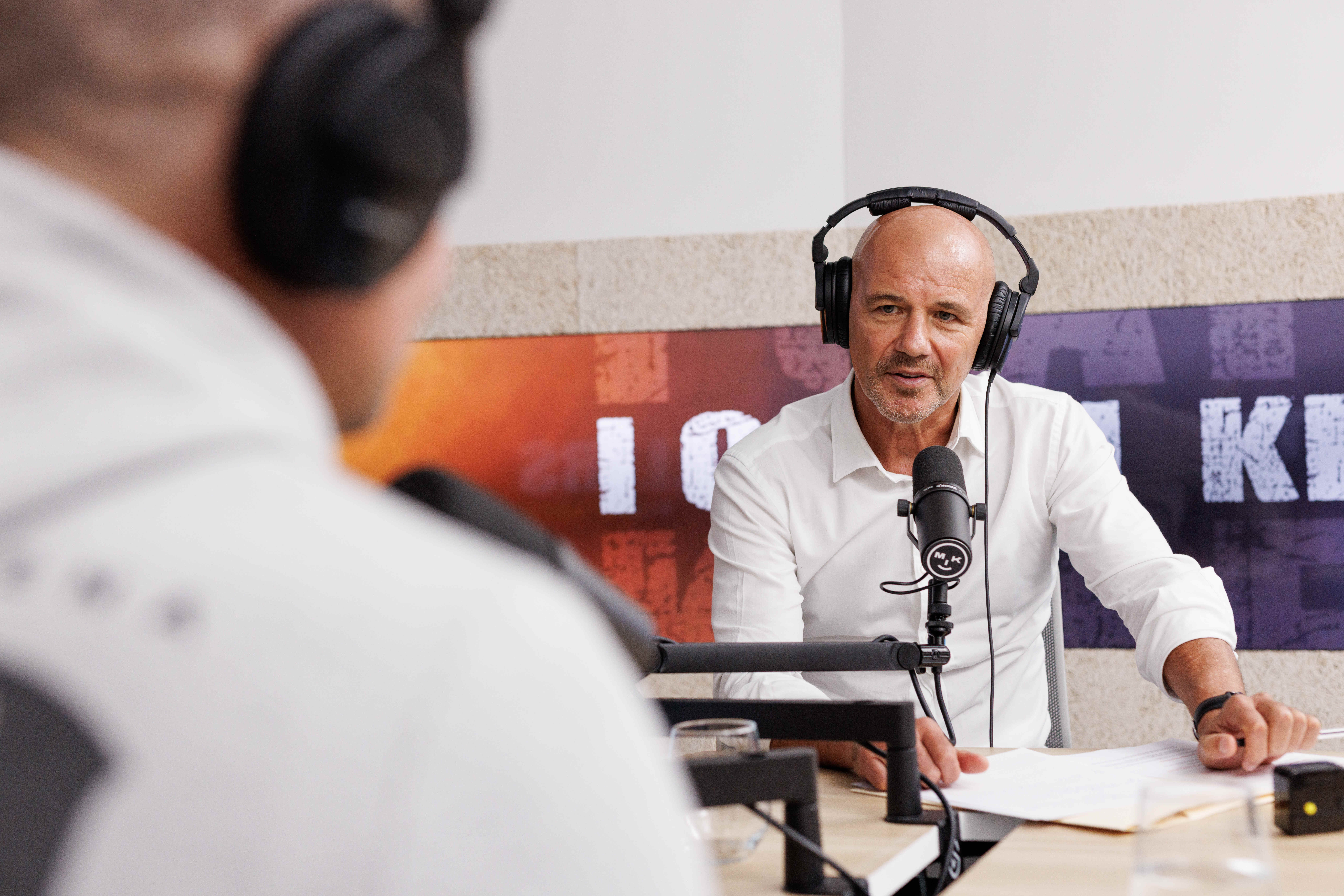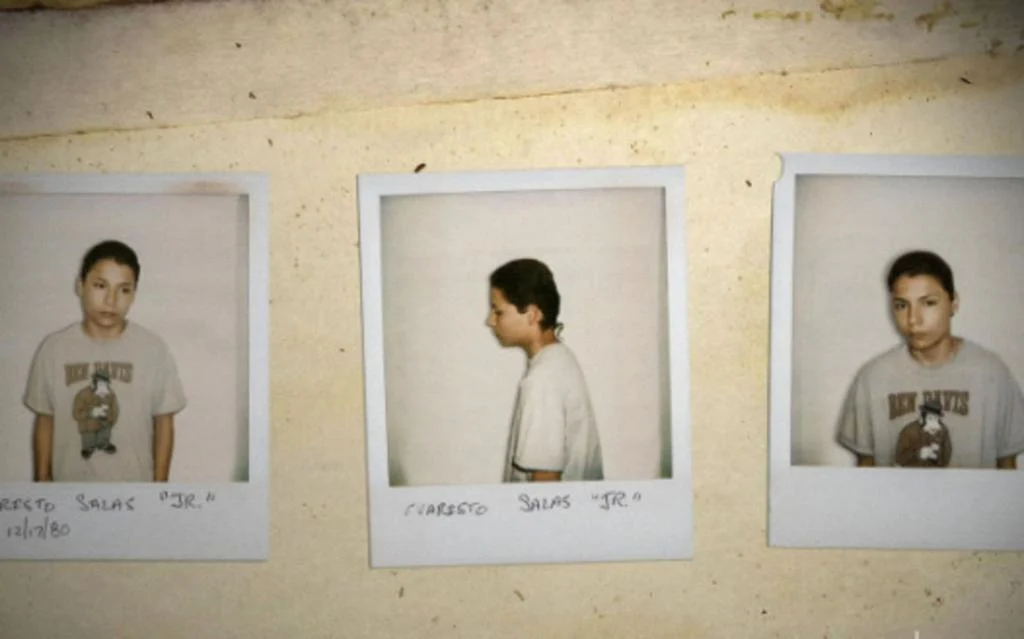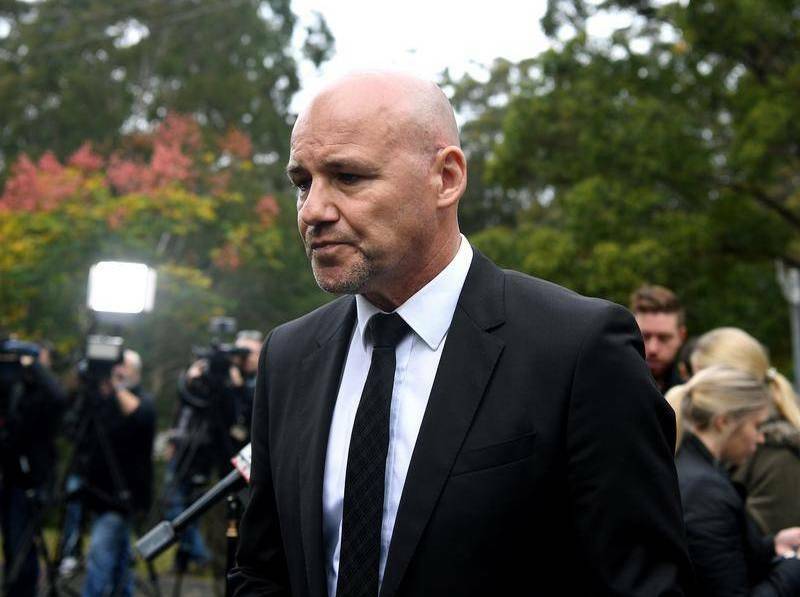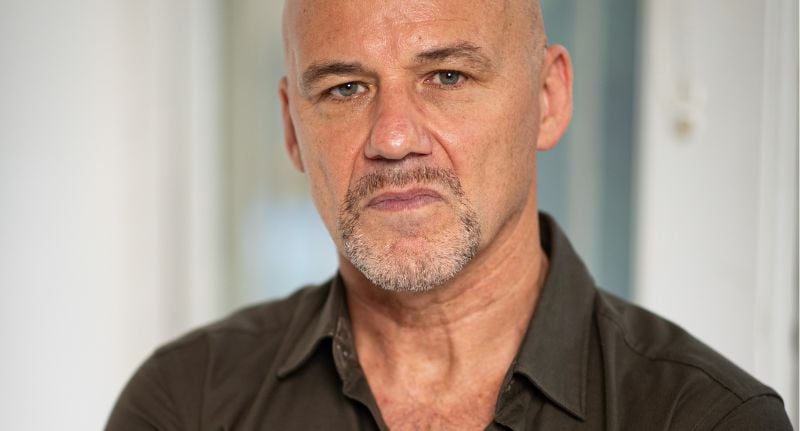Gary Jubelin didn’t set out to be a ‘podcaster’.
But five years and 40 million global downloads later, the former homicide detective has become one of News Corp Australia’s most consistent audio performers with I Catch Killers, a podcast that peels back the layers of the criminal justice system with raw, unfiltered conversations.
The podcast, which launched in 2020 and now sits among the company’s longest-running series, has found a loyal audience in Australia’s somewhat overcrowded audio landscape, especially when it comes to true crime.
According to the latest figures from the Australian Podcast Ranker, podcast listening hit 100.5 million downloads in May alone, with weekly listenership holding steady at seven million.
For Jubelin, the show’s appeal is rooted in something deeper than curiosity: “True crime is not one-dimensional. It’s not about good versus bad,” he told Mediaweek. “There are so many layers to crime that I understood as a cop, and I like to keep people informed.”

Gary Jubelin interviews Neil Cummins, a former Kings Cross Bouncer and John Ibrahim’s former body guard for the I Catch Killers Podcast. Picture: David Swift
The tradecraft of talking
Jubelin’s interview style is unmistakably shaped by his 25 years in homicide, during which he led some of the country’s most high-profile investigations, including the Bowraville murders, the disappearance of William Tyrrell, and the recovery of Matthew Leveson’s body.
“A thing I picked up from being a homicide detective was the ability to communicate with different levels,” he said. “The very nature of the conversations you have with people regarding homicides or serious crimes is often about getting them to reveal information.”
But here’s the thing: podcasting isn’t just about extracting facts, it’s about creating space for people to be heard.
“In a podcast, I like to give a little bit of myself so that they know where I’m coming from,” he said. “That helps people open up.”
Preparation, too, is non-negotiable. “I virtually go down a rabbit hole, finding out about the person I’m about to sit down with, because knowledge is power. Quite often they’ve written books, and I make a point of reading the book cover to cover.’
Why ‘I Catch Killers’ stands out in a crowded true crime market
Jubelin believes what sets I Catch Killers apart is its depth and willingness to explore the grey areas, crime, after all, is rarely black and white.
“A lot of shows have the same arc of ‘we’ve caught the bad guys again, and we move on.’ What I try to do is show crime the way I understood it,” he said. “I also want to give regard to the victims of crime, the impact that crime has, and the way that we can change crime.”
It’s not just the voices of law enforcement and victims that feature. The podcast gives airtime to former offenders, exploring their backstories and, often, their paths to redemption. “Some of the people I’ve spoken to, I had a perception about before sitting down with them. But when I look at what they’re doing now, I see that perception was wrong.”
From investigation to audio production
The move from policing to podcasting may seem jarring, but for Jubelin, it’s been an energising change. “I’m really enjoying what I’m doing on the podcast and working with a great team at news.com.au,” he said. “We hope to continue putting out quality products and giving people a proper understanding about what the world of crime is.”
The podcast has also introduced Jubelin to different kinds of crimefighters. “I’ve come across people that have been fighting crime not getting the recognition that we do as cops. That’s what I’ve learned over five or six years of doing this.”
One standout moment was his interview with Evaristo Salas, a man wrongly imprisoned in the US for nearly 30 years. “It was like speaking to the Dalai Lama,” Jubelin recalled. “He wasn’t out for revenge. He accepted his fate but wasn’t going to be bitter.”

Evaristo Salas, who was the victim of a wrongful imprisonment. He spent 27 years in jail for a crime he didn’t commit. He was just 15 when he was charged.
On William Tyrrell and media missteps
As the former lead investigator into the 2014 disappearance of toddler William Tyrrell, Jubelin remains emotionally invested in the case, and frustrated by its direction.
“I’m very disappointed with the way things are going,” he said. “There’s been an inquest running since I left the police, and I haven’t been called to give evidence despite being responsible for key decisions. I find it extremely, extremely frustrating.”
He believes the media has at times misrepresented the facts: “There’s been people who have been hung out to dry unfairly. I think the public have been confused. It’s time to put up or shut up.”
His message remains firm: “I made a commitment to William’s foster parents and biological family that I’d do everything humanly possible to find out what happened.”
Finding purpose in the aftermath of trauma
Working decades in homicide takes its toll.
Jubelin admits he didn’t always have the space to process trauma while actively serving. “You’re that focused, you haven’t got time to grieve,” he said. “But when you step away, that’s when you emotionally process what you’ve seen.”
Even now, the emotional residue of old cases lingers. “It never leaves you,” he said. “But I think it’s good to look for some brightness in the darkness… through the relationships you form with victims’ families or people who’ve been through horrendous things.”
I Catch Killers is, in many ways, part of that healing process. “I’d like to think that what we’re doing is not glorifying crime by any means,” he said, “but showing the real tragedy of what occurs when a crime happens.”

Former homicide detective Gary Jubelin.
The ongoing appetite for depth
With its 40 million global downloads and a steady stream of new episodes, I Catch Killers continues to perform strongly in a saturated true crime podcast space, fuelled by an audience that craves both justice and humanity.
Jubelin’s podcast is unique in that it offers more than just reach, it offers resonance. Stories linger, guests leave an impact, and listeners stay.
“Every time I walk out of the studio, I’ve taken something away from the guests,” Jubelin said. “The way they emerge from adversity and still appreciate life… that’s something people find surprising when they listen. But it’s what makes it worthwhile.”
